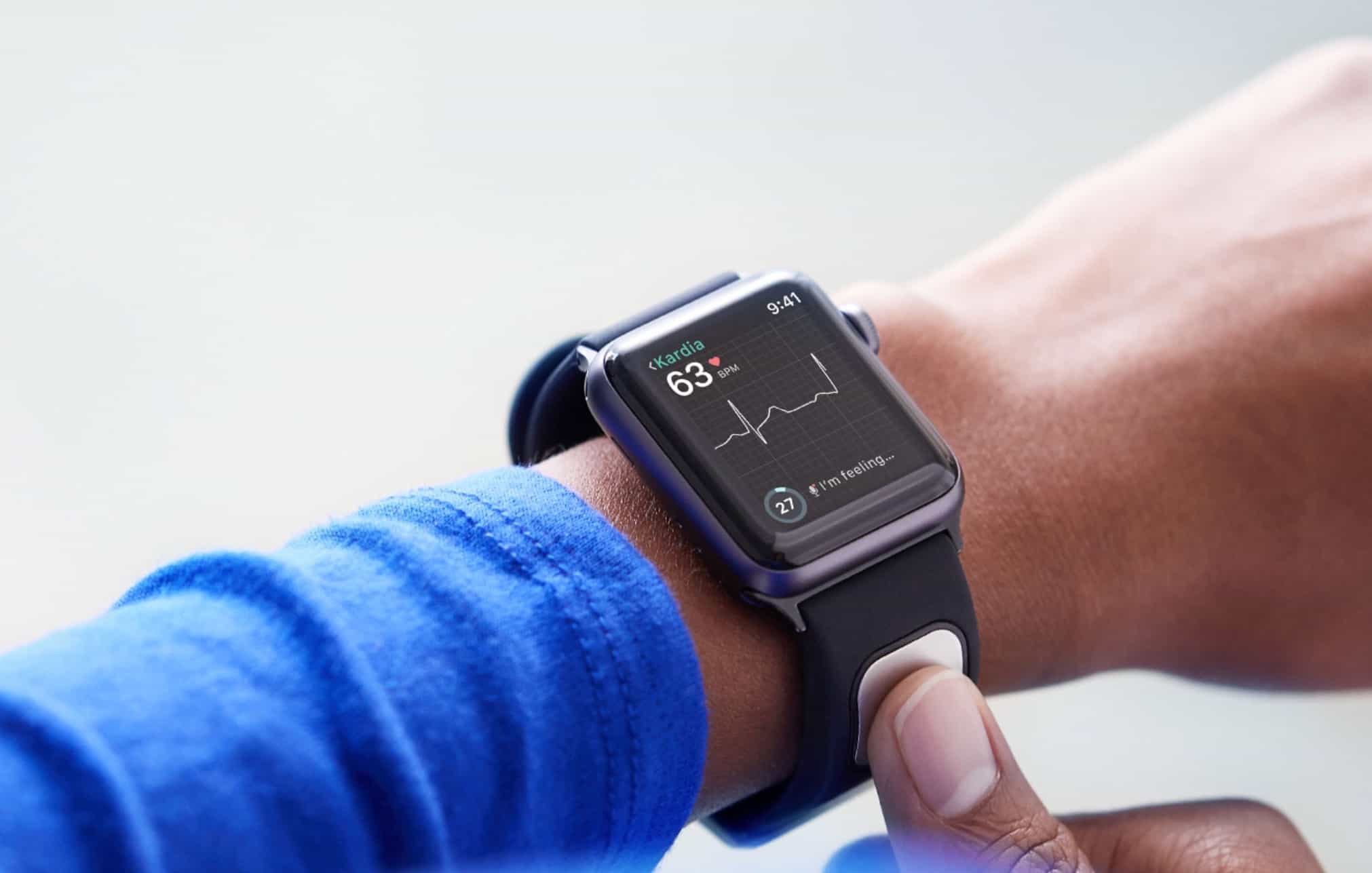A new Apple Watch band can detect dangerous levels of potassium in your blood without the use of needles.
KardiaBand takes an electrocardiogram, then uses a specially designed algorithm to identify abnormal patterns. AliveCor says its Apple Watch band can detect hyperkalemia with 94 percent accuracy. Such a diagnosis usually would require invasive blood tests
Hyperkalemia is the medical term used to describe high levels of potassium in your blood. Chronic kidney disease, diabetes, dehydration and certain medications can cause the condition. Doctors typically diagnose hyperkalemia after taking blood samples.
But AliveCor claims it can detect hyperkalemia without drawing blood.
KardiaBand promises 94% accuracy
AliveCor worked with Mayo Clinic to develop KardiaBand, an Apple Watch strap that identifies high levels of potassium by touch. It starts by taking an EKG reading, then analyzes the data for abnormal rhythms and atrial fibrillation.
A special algorithm identifies patterns that point to hyperkalemia. Because higher levels of potassium interfere with the electrical activity of our cells — including heart cells — EKG readings can detect hyperkalemia.
All you have to do is touch the KardiaBand sensor, explained AliveCor CEO Vic Gundotra, a former Google executive, at the American College of Cardiology Conference in Florida on Sunday.
AliveCor’s algorithm uses a dataset that consists of 2 million EKG readings linked to 4 million potassium values collected over 23 years. By teaching it which readings pointed to hyperkalemia, AliveCor created an AI that could detect the condition from an EKG with 90 percent to 94 percent accuracy.
KardiaBand has a long way to go
We won’t be using KardiaBand to read potassium levels just yet, however.
KardiaBand was approved by the Food and Drug Administration as the first medical device for Apple Watch last November. The band is on sale now for EKG readings, but it hasn’t yet gained FDA approval for diagnosing hyperkalemia.
The Verge reports AliveCor is “working on that and building more clinical trials,” but there’s no word on when potassium readings might be available.


